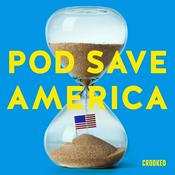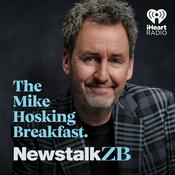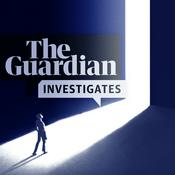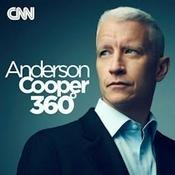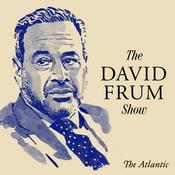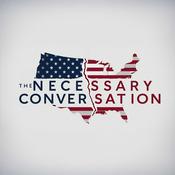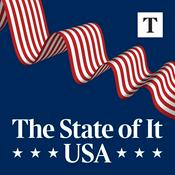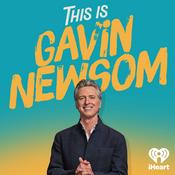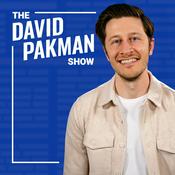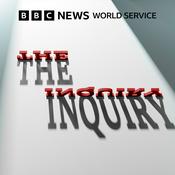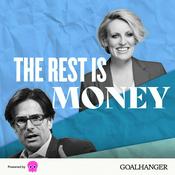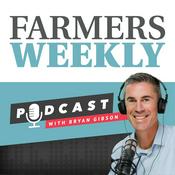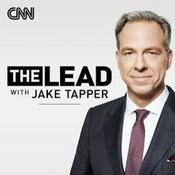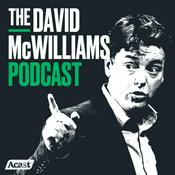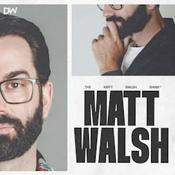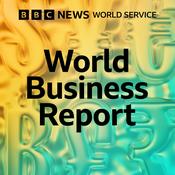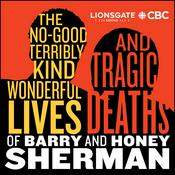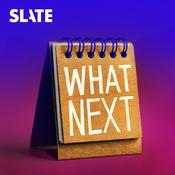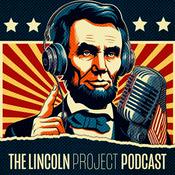93 episodes
Why AI's "Simulated Intelligence" is Great for Grunt Work, But Not Breakthroughs or Creativity
31/1/2026 | 1hThis is the post-show podcast post of my Sustain What conversation with Christopher Mims, the Wall Street Journal tech columnist and author of How to AI, and Melanie Mitchell, the Santa Fe Institute researcher deeply dug in on the thing called artificial intelligence that remains pretty unintelligent.
If you want to understand where this exposively evolving technology is, and isn’t, taking us, you have to subscribe to Mitchell’s Substack blog:
And if you want to make the most of the AI toolkit at work or in the rest of life - from investing to music making to…. - you really need to read Mims’ book.
I loved this moment when Mims introduces the concept of “productivity theater” - when AI produces what looks like work, but the work required to make the output useful can eliminate any true productivity gains:
One thing AI is good at is efficiently summarizing conversations, so here goes, thanks to the Google AI tool embedded in YouTube:
* Introduction of Guests and AI Context (0:48-1:31)
* Andy Revkin introduces Christopher Mims and Melanie Mitchell, setting the stage for a discussion on managing information in a world increasingly shaped by AI.
* Christopher Mims’ new book is highlighted as a user’s guide to AI technologies, emphasizing both their capabilities and limitations.
* Critique of AI Hype and Investment Bubble (4:25-8:18)
* Melanie Mitchell expresses skepticism about the predicted societal transformation by AI, noting the “crazy” amount of money flowing into the sector (4:52).
* Christopher Mims discusses the significant investment bubble in AI, predicting an “ugly” outcome when it inevitably bursts, leading to stranded assets like half-empty data centers (7:44-8:18). He introduces the term “productivity theater” to describe AI’s ability to generate “products that look like work” (6:42-6:56).
The limits of simulated intelligence
* Understanding AI: Simulation vs. True Intelligence (9:22-12:21)
* The conversation delves into the nature of AI, explaining that these systems are “incredibly good at simulating intelligence” but lack abstract reasoning, long-term planning, and world models (9:36-10:17).
* Melanie Mitchell elaborates on the ambiguous definition of “intelligence,” suggesting that AI should perhaps be viewed as “complex information processing” rather than “artificial intelligence” (10:48-12:09).
* AI’s Role in the Workplace and “Jagged Frontier” (13:31-22:20)
* Christopher Mims describes AI’s “jagged frontier,” where it excels at retrieving and remixing information (e.g., coding) but struggles with tasks outside its training data or in novel environments (13:31-14:57).
* Melanie Mitchell discusses the misunderstanding of how AI impacts jobs, noting that AI systems often fail in real-world scenarios despite performing well on benchmarks (18:00-19:44). She emphasizes that a “job is not equal to a set of tasks” (18:37).
* Christopher Mims adds that AI’s high failure rates can lead to a decrease in human productivity, as time is spent correcting AI-generated “messes” (20:29-21:20).
* Regulation and Ethical Concerns (28:57-32:17)
* The discussion touches on the need for AI regulation, especially in critical areas like healthcare, where AI is being considered for Medicare benefit applications (29:10-29:23).
* Christopher Mims highlights intense lobbying efforts against state-level AI regulations and uses the example of Grok on X (formerly Twitter) to illustrate the “horrific ways” AI can be abused without proper oversight (29:48-31:22).
AI’s energy demands will shrink
Melanie Mitchell made a fascinating and important point responding to a viewer’s question about energy and water demands. What she says parallels the shift from “baseload” power generation to distributed renewable and solar energy (not to mention from mainframe computers to your phones):
* Environmental Impact and Future of AI Architecture (32:26-35:54)
* The energy and water consumption of AI data centers is discussed, with Melanie Mitchell noting the push for more efficient and smaller AI models, a trend she believes will continue in the long term (33:07-35:02).
* Christopher Mims agrees that efficiency drives will lead to more localized AI models, eventually running on devices like phones (35:07-35:28).
* AI as a Tool vs. Superintelligence and Scientific Inquiry (37:33-46:51)
* The guests discuss whether AI’s simulated intelligence is “good enough” for certain applications, like companionship, but caution about the potential for catastrophic failures and detachment from reality (38:08-40:11).
* They debate the scientific and commercial pressures within the AI field, with Melanie Mitchell arguing that the focus on “making products” (43:04) hurts fundamental scientific inquiry by de-incentivizing “slower science” (44:56-45:12).
* Christopher Mims contrasts AI development with other technologies (like energy), noting that AI breakthroughs have often been “kind of an accident” rather than the result of patient, long-term research (46:12-46:51).
AI and the arts - music case study
I closed things out by demonstrating how Suno took my barebones guitar-and-vocal version of my song “Save Dreams for Sleeping” and generated a rousing anthem. As I explained, the downside is a lot of SLOP on Spotify etc, but also demoncratization of music making. What do you think?
Sustain What is a reader-supported publication. To receive new posts and support my work, consider becoming a free or paid subscriber.
This is a public episode. If you'd like to discuss this with other subscribers or get access to bonus episodes, visit revkin.substack.com/subscribe- This was a deeply illuminating conversation with top-flight researchers aiming to get beyond the back-and-forth edge-driven volleys on global warming’s role in shaping severe winter weather in the United States.
Watch above or watch and share on Facebook, LinkedIn, YouTube and X/Twitter.
Here’s one key point from Jacob Chalif, the lead author of a 2025 study that found the recent upswing in waviness in the jet stream was matched or outmatched by earlier periods several times in previous decades back through the 20th century.
This doesn’t mean global warming isn’t changing such atmospheric and weather patterns. It does mean that natural variability in the system is capable of such dynamics as well.
The details and background are in the pre-show post here:
Here are some of the papers we discussed:
* July, 2025 - The intensification of the strongest nor’easters https://www.pnas.org/doi/10.1073/pnas.2510029122
* July, 2025 - The Mid-20th Century Winter Cooling in the Eastern U.S. Explained https://eos.org/editor-highlights/the-mid-20th-century-winter-cooling-in-the-eastern-u-s-explained
* May 2025 - Attributing climate and weather extremes to Northern Hemisphere sea ice and terrestrial snow: progress, challenges and ways forward https://www.nature.com/articles/s41612-025-01012-0
If you like what I’m doing, consider becoming a paying supporter.
We also talked about a keystone need - vulnerability reduction - and something Trump could do (that he won’t do of course):
Thank you Michael Ludgate, Vivian Henry, Graham Chant, Peter van Soest, and many others for tuning into my live video! Join me for my next live video in the app.
Sustain What is a reader-supported publication. To receive new posts and support my work, consider becoming a free or paid subscriber.
This is a public episode. If you'd like to discuss this with other subscribers or get access to bonus episodes, visit revkin.substack.com/subscribe - I have deeply mixed feelings about AI in music, which I’ll elaborate on soon.
But as a songwriter in act three of my life, and facing the reality that it takes a lot of time and money to build full productions of songs, I’ve started using Suno to envision what my barebones guitar-and-vocal tunes can sound like on a bigger scale.
I am going to pull together some of the wonderful musicians around our Downeast Maine home to record an album later this winter and spring. But given the latest atrocity in Minneapolis, and the even more atrocious spin by scum like Stephen Miller, I had to put this Suno take on my song “Save Dreams for Sleeping” out for you to hear, sing along on, and hopefully share.
Here’s the rough bedroom recording of the basic song as posted here and on CD Baby last year, followed by the lyrics.
Save Dreams for Sleeping
© 2025, Andy Revkin, Written Feb. 4, 2025, updated August 3, 2025
We all hold a dream somewhere deep in our minds,
Where everything’s fair and everyone’s kind.
Flowers all blooming, no smoke in the skies.
No wars in the headlines, no tears in your eyes.
But save dreams for sleeping. It’s time to get real.
Hard workers are suffering while billionaires steal.
Young women in trouble can’t find caring hands.
House builders born elsewhere get bundled in vans.
I’m not saying it’s easy. All good things take time.
Those trying to divide us are good at their crimes.
But if we stop dreaming, dive into the fray.
A more perfect union is coming our way.
Our country needs mending, but how to begin?
With problems so tangled, no start and no end?
Begin by protecting those facing the fire.
Reach out by connecting through common desires.
One day at a time, the trust you create
Will carry us further than fighting and hate.
One stitch at a time the fabric you weave,
Will grow ever stronger than you can believe.
So save dreams for sleeping. It’s time to get real.
Hard workers are suffering while billionaires steal.
Young women in trouble can’t find caring hands.
House builders born elsewhere get bundled in vans.
I’m not saying it’s easy. All good things take time.
Those trying to divide us are good at their crime.
But if we stop dreaming, dive into the fray
A more perfect union is coming our way.
~ ~ ~
To sustain Sustain What and my music side, consider becoming a free or paid subscriber.
This is a public episode. If you'd like to discuss this with other subscribers or get access to bonus episodes, visit revkin.substack.com/subscribe Meet Former Russian Propagandist Andrew Ryvkin and Propaganda Expert Renee Hobbs
23/1/2026 | 1h 1 mins.There were many notable moments in my Sustain What discussion of Russian and American political propaganda, so I encourage you to watch the whole show. But here are a couple of highlights:
Andrew Ryvkin, who created propaganda for the Kremlin for many years and now writes about information wars (now living in the United States), described a talk show he produced more than a decade ago, called “Honest Monday” (seriously), which would explore an issue each week (chosen by Kremlin officials) through several vantage points.
It’s an illusion of a debate. People, the guests, this really is their opinion, what they’re saying. They’re not lying. Some are left, some are right, some are centrist. But the point is to align what they’re saying into a structure that would lead the viewer to realize,to realize, well, the more centrist, Kremlin, point of view is actually best.
I immediately noted how that structure was echoed by Fox News’s Hannity and Colmes, back in the “fair and balanced” days at the Murdoch-owned network.
Renee Hobbs, who teaches propaganda literacy at the University of Rhode Island, stressed how visual information like the flood of White House-generated memes in the past year bypasses critical thinking and spurs strong emotions.
I urged viewers, and urge you, to read the Fox News op-ed posted last summer by Billy McLaughlin, who ran White House social media from inauguration through August before heading to the private sector.
Here’s an excerpt:
We did not build a cautious, government-style account. We built a fast, culturally fluent content machine designed to cut through the noise and win online. And it worked.
In just six months, the administration’s platforms added over 16 million new followers, with the fastest growth among Americans aged 18–34. We generated billions of video views and gained more than half a million new YouTube subscribers – nearly triple the previous administration’s total growth over four years.
But it was never just about numbers. Our success came from echoing the humor, passion and identity of a movement that was already alive. We did not invent the culture. We gave it a megaphone.
This was not entertainment for entertainment’s sake. Our meme-heavy, content-first strategy was aligned with the president’s priorities. Digital was not a sideshow. It was a frontline tool for shaping narratives, building momentum, and applying pressure.
One of the big takeaways was to try hard to avoid taking the “rage bait” he and others are creating for you. A fresh example emerged even as I was running the show, as a Trump line about cold weather and global warming prompted heaps of replies from climate-focused liberals, many of whom overstated the science on their end. That is NOT productive, I warned:
The curtain raiser post has lots of relevant links and a related Sustain What chat with Hobbs:
Thank you Andrei Codrescu, Michael Ludgate, Jeremy Zilar, Marshall Mermell, Tim Buxton, and many others for tuning into my live video! Join me for my next live video in the app.
This is a public episode. If you'd like to discuss this with other subscribers or get access to bonus episodes, visit revkin.substack.com/subscribeHow to Navigate a Superstorm of Malicious, Divisive, Dangerous and Distracting Propaganda
23/1/2026 | 1h 17 mins.First, I hope you can find time to listen to this evergreen conversation I had with Renee Hobbs, a leading authority and educator (at the University of Rhode Island) aiming to spread propaganda literacy. Her mission, in essence, is to help us all cut through the ever-evolving superstorm of online material and widgets designed to alarm, disarm, distract, confuse or entice - in other words, to enshittify what could otherwise be a miraculous set of tools for connecting and informing society. We spoke at the 2025 Bioneers Conference.
But make sure to watch below as well. On Sustain What I just introduced Hobbs live to Andrew Ryvkin, a Russian-born writer and analyst focused on propaganda, authoritarian rule and international relations with a special level of expertise: he spent many years producing propaganda inside the Kremlin’s multi-layered media system.
Watch and weigh in (and share) on Facebook, LinkedIn, YouTube.
As Ryvkin has been explaining in a series of “Pop Propaganda” talks (and will lay out in a forthcoming book), “Modern Russian propaganda is much more than angry talk-show hosts waving missiles on TV or troll farms flooding social media. It’s influencers, streaming platforms, and marketing campaigns that promote the Kremlin’s agenda, just as Nike advertises its sneakers….”
Make sure to subscrribe to Andrew Ryvkin’s Substack letter of course. Start with his origin story: I used to work for the Kremlin…
And read his articles in The Atlantic.
Just for the record, despite our super similar names, we don’t seem to be related. He says his roots go back to Odessa. Mine go back to Ripky, a village in Ukraine my paternal grandfather fled around 1905 amid a peasant revolt and pogroms.
Sustain What is a reader-supported publication. Consider becoming a paid subscriber.
Just in case missed, here’s ANOTHER evergreen conversation I did with Hobbs in year one of the pandemic:
This is a public episode. If you'd like to discuss this with other subscribers or get access to bonus episodes, visit revkin.substack.com/subscribe
More News podcasts
Trending News podcasts
About Sustain What?
Sustain What? is a series of conversations, seeking solutions where complexity and consequence collide on the sustainability frontier.
Revkin believes sustainability has no meaning on its own. The first step toward success is to ask: Sustain what? How? And for whom? revkin.substack.com
Podcast websiteListen to Sustain What?, Pod Save America and many other podcasts from around the world with the radio.net app
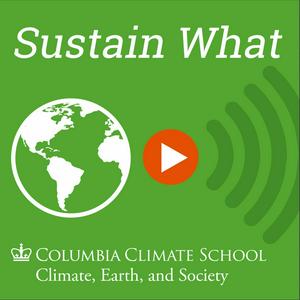
Get the free radio.net app
- Stations and podcasts to bookmark
- Stream via Wi-Fi or Bluetooth
- Supports Carplay & Android Auto
- Many other app features
Get the free radio.net app
- Stations and podcasts to bookmark
- Stream via Wi-Fi or Bluetooth
- Supports Carplay & Android Auto
- Many other app features


Sustain What?
Scan code,
download the app,
start listening.
download the app,
start listening.

